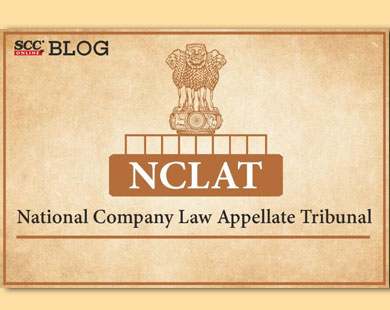National Company Law Appellate Tribunal | Dismissing the appeals, a bench comprising of Rakesh Kumar Jain*, J. and Kanthi Narahari (Technical Member) held that Regulation 26(2) of the CIRP Regulations, 2016 being directory cannot override the power of the CoC which can take the final decision accepting or rejecting the resolution plan.
In the instant matter, a Resolution Plan was submitted by the Resolution Applicants (respondent 5 & 6), which was rejected by the CoC. Later, the Adjudicating Authority directed the initiation of liquidation proceedings of the asset of the Corporate Debtor under S. 33 of the IBC, 2016. During the pendency of liquidation application, the applicants acquired 100% voting share in the CoC via assignment deed. The appellant filed an appeal to set aside the order initiating Liquidation and send the case back to CoC so that they can review the prior Resolution Plan.
The respondents contended that no express power is provided to this Tribunal under IBC to set aside the order of liquidation. The appellant contended that with the change of circumstances, the Tribunal can still pass an order of turning the clock back even after the CoC has become funcutous officio. The appellant also contended that since there is no express provision in IBC to set aside the Liquidation Order, R. 11 of the NCLT Rules, 2016 may be invoked.
The issue in hand is whether the NCLAT can still turn the clock back, even after the members of CoC passed a resolution to liquidate the Corporate Debtor and allowed the Application under S. 33 IBC.
Discussing the judgments relied by the parties, Sharad Sangi v. Vandana Garg, CA (AT) (Ins.) No. 461 of 2018 and State of Maharashtra v. Videocon Industries Ltd., 2022 SCC OnLine NCLAT 6, the Tribunal opined that the ratio of precedents mentioned is not applicable since there is a change in the voting share.
Dismissing the contention to rely on Rule 11 of the NCLT Rules, the Tribunal stated that the Supreme Court has repeatedly held in several cases that the IBC, 2016 is comprehensive on its own and since there is no provision to deal with such a situation as we have one in hand, we do not find it to be a fit case to apply Rule 11 of the NCLAT Rules 2016 which operate in altogether different sphere.
The Tribunal held that appeal is devoid of merits and therefore is dismissed without any order cost.
[Shailaja Vaibhav Patil v. Harshad S. Deshpande, 2022 SCC OnLine NCLAT 1615, decided on 05-12-2022]
Advocates who appeared in this case:
Mr. Varun Singh, Counsel for the Appellant;
Mr. Rohit Rathi, Counsel for the Respondent No. 1;
Mr. Rahul Totala and Mr. Rajat Malu, Counsel for the Respondent No. 3.
*Ritu Singh, Editorial Assistant has put this report together.






